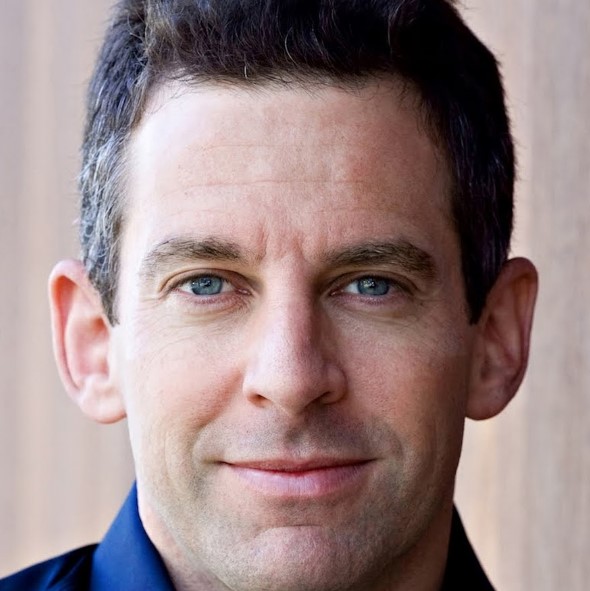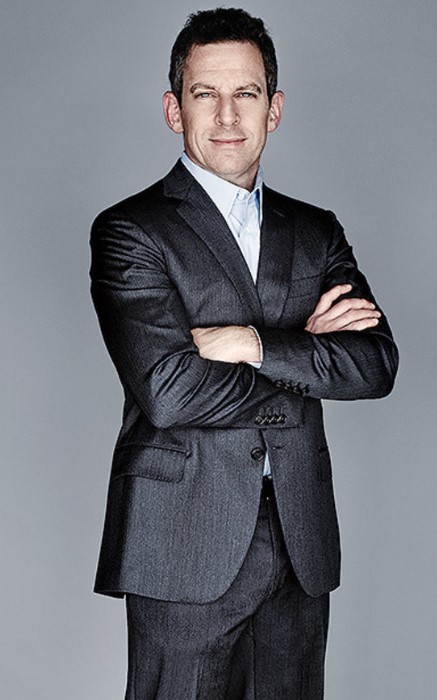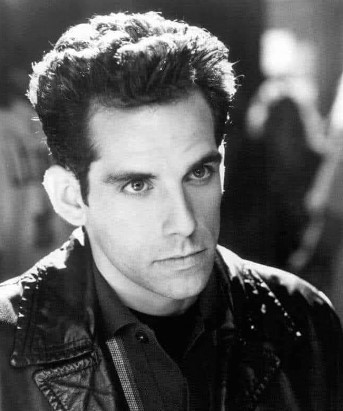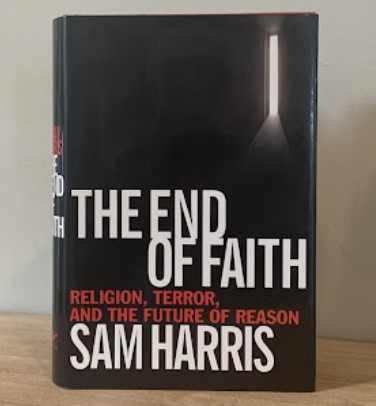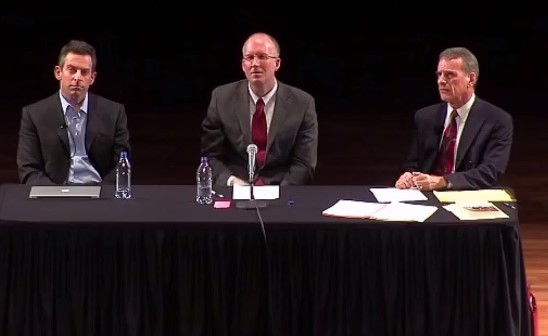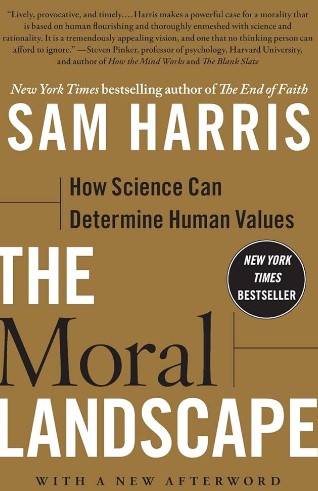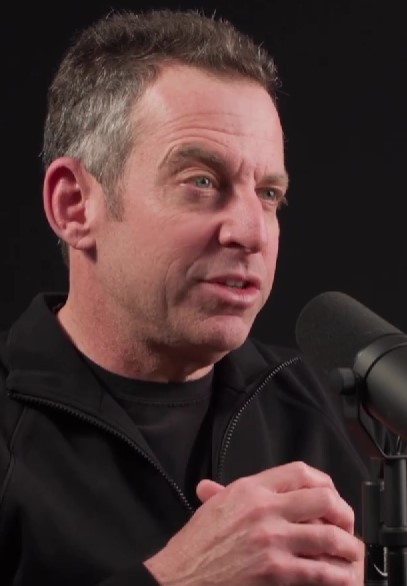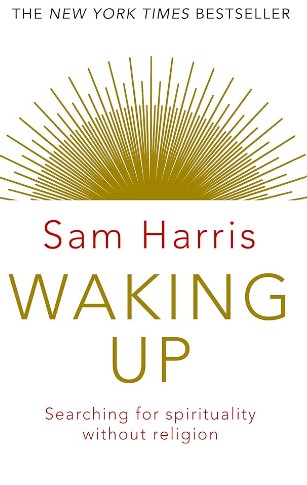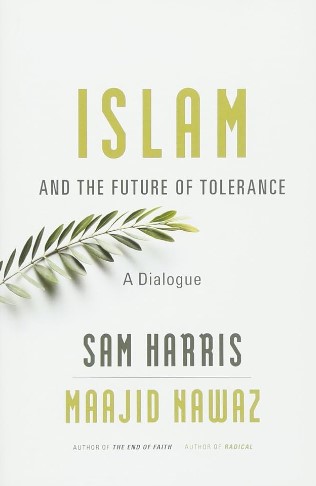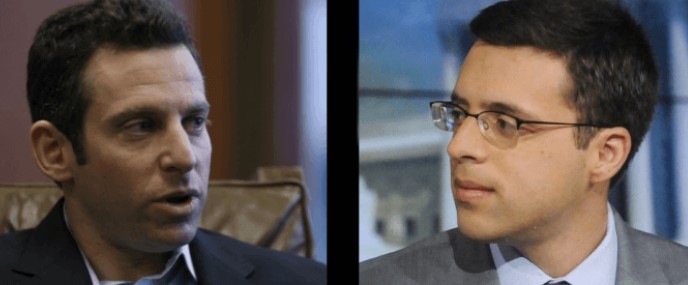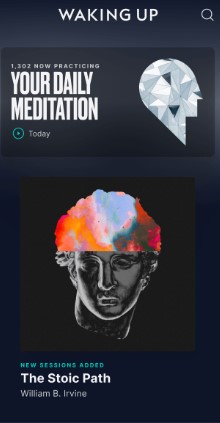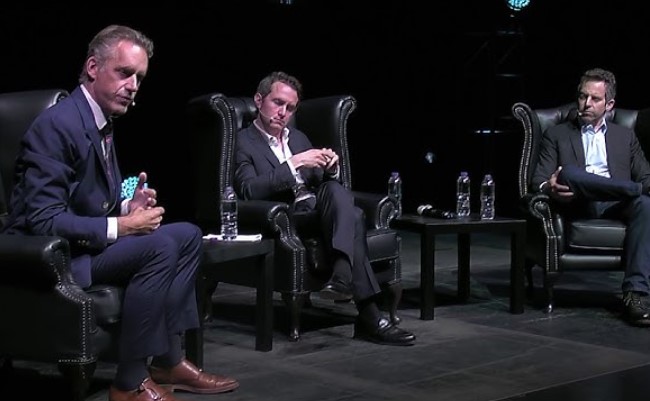Sam Harris Age, Wife, Family, Biography
Quick Info→
Wife: Annaka Gorton
Age: 57 Years
Hometown: Los Angeles
| Bio/Wiki | |
|---|---|
| Full Name | Samuel Benjamin Harris |
| Nickname | Sam |
| Profession(s) | • Author • Podcaster |
| Physical Stats & More | |
| Height (approx.) | 6' 1" (185 cm) |
| Eye Colour | Blue |
| Hair Colour | Salt and Pepper |
| Career | |
| Awards and Honors | • Webby Award for 'People's Voice' in the category 'Science & Education' under "Podcasts & Digital Audio' (2017) • Included in the list of 8 podcasts that will change how you think about human behavior by the UK Business Insider (2017) • PC Magazine included his podcast in their list of "The Best Podcasts of 2018 • Top 100 Most Spiritually Influential Living People (2019) |
| Personal Life | |
| Date of Birth | 9 April 1967 (Sunday) |
| Age (as of 2024) | 57 Years |
| Birthplace | Los Angeles, California |
| Zodiac sign | Aries |
| Signature |  |
| Nationality | American |
| Hometown | Los Angeles, California |
| College/University | • Stanford University, California • University of California, Los Angeles |
| Educational Qualification(s) | • Bachelors of Arts from Stanford University, California • Ph. D. from University of California, Los Angeles |
| Religion | Atheist [1]Wired |
| Social Media | • Instagram • YouTube |
| Relationships & More | |
| Marital Status | Married |
| Marriage Date | Year, 2004 |
| Family | |
| Wife/Spouse | Annaka Gorton (author and editor) |
| Children | Daughters 2 |
| Parents | Father- Berkeley Harris (actor) Mother- Susan Harris (television writer and producer)  |
Some Lesser Known Facts About Sam Harris
- His mother, Susan Harris, is known for writing the television show The Golden Girls, which aired on NBC (1985-1992).
- Sam Harris’s father was born in North Carolina and belongs to a Quaker family. His mother is Jewish.
- When he was 2 years old, his parents divorced, and he was raised by his mother.
- Harris once stated that he was brought up in an environment where his parents never talked about religion. He also mentioned that he was not brought up as an atheist.
- Sam Harris initially majored in English at Stanford University. He later became interested in philosophical questions after once being treated with MDMA.
- This experience made him interested in obtaining spiritual knowledge without drugs. Harris left Stanford in his second year, soon after his MDMA experience.
- He then travelled to India and Nepal and studied meditation from some Buddhist and Hindu teachers, including Dilgo Khyentse.
- In the early 1990s, Sam Harris worked voluntarily as a guard for spiritual leader Dalai Lama for a few weeks.
- In 1997, after spending eleven years abroad, he returned to Stanford and finished a B.A. in philosophy in 2000.
- Harris started writing his first book, The End of Faith, soon after the 9/11 attacks happened in the United States of America in 2001.
- He received a Ph.D. in cognitive neuroscience from UCLA in 2009. His thesis was titled The Moral Landscape: How Science Could Determine Human Values, and his advisor was Mark S. Cohen.
- Sam Harris writes about philosophy, neuroscience, and criticizing religion.
- He earned media attention after he began criticizing religion, especially Islam. He is called one of the Four Horsemen of Atheism along with Richard Dawkins, Christopher Hitchens, and Daniel Dennett.
- Harris has contributed to many noted publications including The New York Times, Los Angeles Times, Economist, London Times, The Boston Globe, and The Atlantic.
- His book titled ‘The End of Faith’ (2004) was listed on The New York Times Best Seller list for 33 weeks.
- After its release, ‘The End of Faith,’ won the PEN/Martha Albrand Award for First Nonfiction.
- In September 2006, one of his debates with Robert Wright on the rationality of religious belief became popular.
- Later, he went on to debate on similar topics with many other noted philosophers including Andrew Sullivan on Beliefnet (2007), Rick Warren for Newsweek magazine (2007), Rabbi David Wolpe (2007), Deepak Chopra and Jean Houston (2010) on ABC News Nightline, William Lane Craig (2011), and scholar Reza Aslan.
- Sam Harris is known for criticising religion. He is considered a notable personality in the New Atheist movement.
- He believes that pretending to know things one does not know is against the principles of science.
- He is against all religions and believes that they are not all the same. He often differentiates one religion from another like Islam with Jainism. He focuses on their differences in doctrine and scripture.
- He particularly criticizes Islam and often argues that it poses a unique danger.
- Harris has criticized Christian rights in American politics.
- He also criticises liberal Christianity. He often argues that this protects fundamentalists who claim that their beliefs are based on the teachings of the Bible; however, they are being influenced by secular modernity.
- He rejects the idea that spirituality and rationality are opposites. He supports a balanced approach that keeps spirituality and science without involving religion.
- Harris thinks spirituality should be explained through scientific fields like neuroscience and psychology.
- He believes science can help improve human well-being but might not answer all questions about existence. According to him, some answers can be found through personal experience.
- Harris’s idea of spirituality does not include belief in any god.
- In his book ‘The Moral Landscape,’ Sam Harris mentions that science can solve moral problems and improve human well-being.
- Harris often supports raising taxes on the wealthy and reducing government spending. He believes taxes are theft and many wealthy people do not contribute enough to society.
- Harris owns guns and supports gun culture and the NRA. He disagrees with some liberal gun control proposals like the assault weapons ban but supports mandatory training, licensure, and background checks.
References/Sources:

